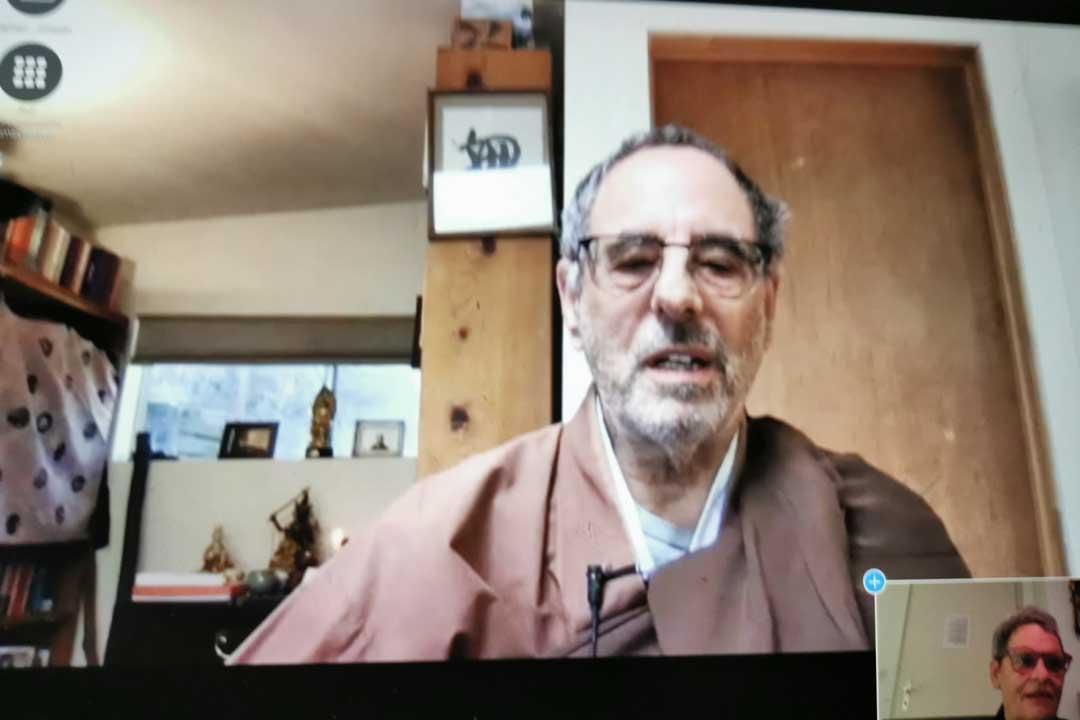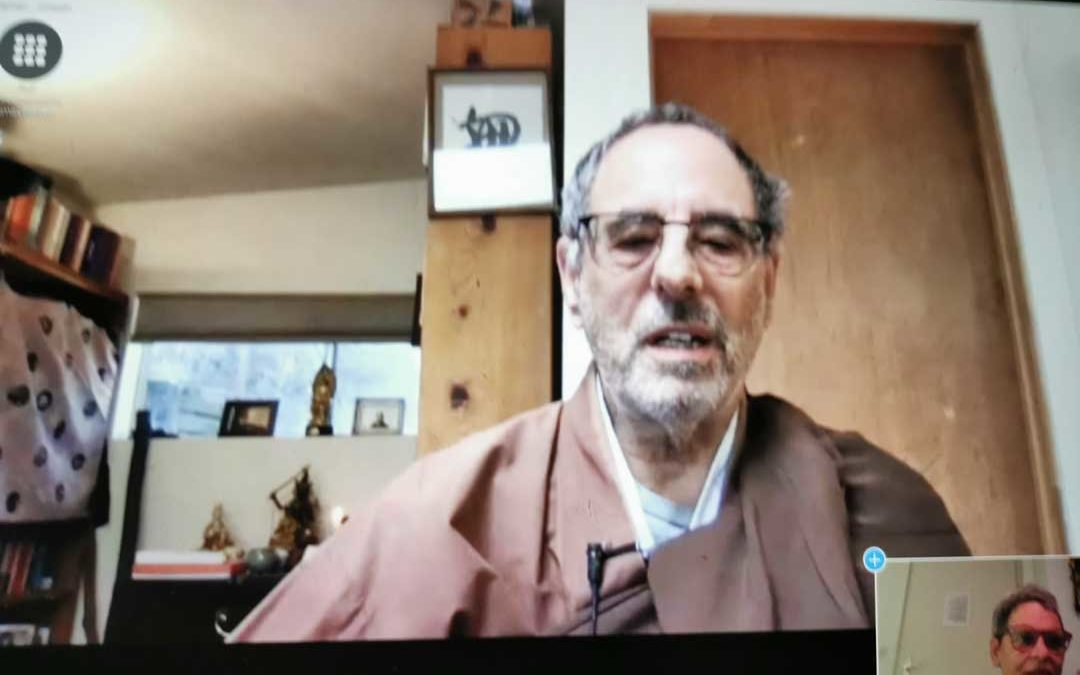I understood what being a teacher means in essence through a lecture given by Norman Fischer. He meant it primarily or exclusively in terms of spiritual teachership, helping us to live in decency and dignity, according to moral principles and in harmony with cosmic law, to live and also to die, and in all transitions.
I heard about the fact that it depends on the „aspiration“, that is, the aspiration for the good or higher, or not even that. That what matters is aspiring to what we think is deeply worth aspiring to. So, being a good role model, a term that is not dynamic enough and sounds too much like finality. As if anyone had it figured out. No, the point is, the teacher didn’t get it either, she merely realized THAT she needed to practice, and perhaps HOW she needed to practice, in order to realize the aspirational. To become the aspired to.
Now we will not achieve this in one lifetime and also not consistently the same and once and for all. Nevertheless, we have a sensorium for whether and to what extent someone behaves trustworthy and with integrity, and our understanding of ourselves in this respect also grows. Most of the time, our fellow human beings mirror us when we need to be careful not to slip or have already slipped without realizing it.
In this respect, Thich Nhat Hanh is so right when he says and postulates that in the future, which of course is happening right now, it is not the individual who awakens, but the whole Sangha. We behold and recognize ourselves in each other’s mirror, and our co-creativity is cranked up in interaction. There are the studies on „fields“ about such phenomena. I have always been amazed and am amazed anew every time at the wise and surprising ideas, insights and conclusions people come to in well-led groups. Here I include myself. Even when I lead potential development groups myself, I always come up with the best ideas. But also when I participate in such and similar groups.
We identify ourselves with our teachers, those we loved, in our lives, with those we love. If we did not love them, respect them, appreciate them, we would not (be able to) take anything from them. As we grow with them, we take them into ourselves, these role models in „constant effort,“ becoming more independent of the teacher’s presence. He has merged with us, his striving has become our own. If they really loved us, these life teachers, we were allowed to develop our own potential. In the best case, the two cross-fertilize each other. But sometimes the teacher needs to be more educator, the teacher needs to be father or street worker. Advocates are also needed. One hears me often, in counseling sessions, as a coach or in group work, say: I am speaking to you now as a speaker for the Child Protection Agency. As the head of the youth welfare office. As an equal opportunity commissioner… Over time, we learn role flexibility and practice speaking the respective language of the professions mentioned. Above all, to speak inwardly, to ourselves or to our loved ones, around us.
Good teachers follow you or sometimes walk a bit at your side, with you. Sometimes they go ahead. They go ahead anyway, otherwise they would have nothing to say to you, about the way. But in the end it is of no use at all. You have to walk alone, and the path is created by walking.
The teacher has found a home in you.

